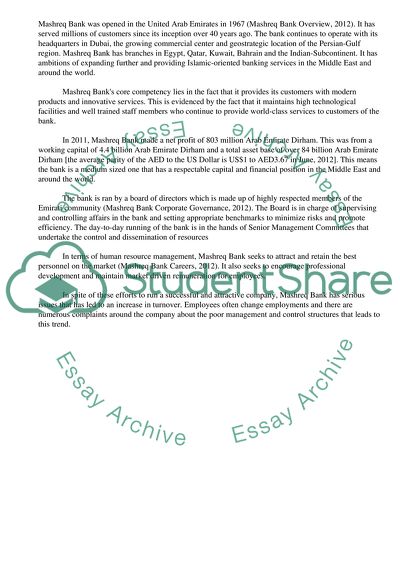Cite this document
(“Mashreq Bank (Employee Empowerment) Research Paper”, n.d.)
Mashreq Bank (Employee Empowerment) Research Paper. Retrieved from https://studentshare.org/management/1399804-mashreq-bank-employee-empowerment
Mashreq Bank (Employee Empowerment) Research Paper. Retrieved from https://studentshare.org/management/1399804-mashreq-bank-employee-empowerment
(Mashreq Bank (Employee Empowerment) Research Paper)
Mashreq Bank (Employee Empowerment) Research Paper. https://studentshare.org/management/1399804-mashreq-bank-employee-empowerment.
Mashreq Bank (Employee Empowerment) Research Paper. https://studentshare.org/management/1399804-mashreq-bank-employee-empowerment.
“Mashreq Bank (Employee Empowerment) Research Paper”, n.d. https://studentshare.org/management/1399804-mashreq-bank-employee-empowerment.


